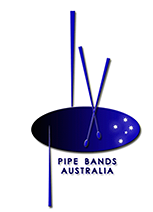
Australia and New Zealand have promoted a South Pacific Championship for almost two decades, the event alternating between countries every three years in conjunction with national titles. The formal agreement ended with this year’s South Pacific and New Zealand Championships in Nelson, NZ.
PBA councillors meeting in Melbourne believe it is time to consider expanding connections in the Southern Hemisphere to build engagement and interaction between bands and players in countries beyond Australia and New Zealand. Competitions conducted in Singapore observe the contest rules of Pipe Bands Australia and members of the Australian Pipe Band College regularly conduct examinations in Hong Kong.
A PBA spokesman said: ‘Pipe Bands Australia will continue its strong links with the Royal New Zealand Pipe Bands Association and discuss formalising bonds with an agreement that may include ongoing adjudicator exchange for major championships. The National Management Committee will investigate the South-East Asia concept, speaking with stakeholders across the region and co-operating closely in development of any proposal with the RNZPBA.’
Pipe Bands Australia is an affiliate member of the Royal Scottish Pipe Band Association and signatories to an accord with the Alliance of North American Pipe Band Associations.
[wds id=”6″]
Still in the southern hemisphere, Chris Terry, one of the judges in the Shasta Piping Society’s composing competition is very well known to pipers of previous generations. However the current solo piping world may not know too much about him so we thought it would be interesting to run this CV:
Began piping at the age of 13, at St Andrew’s College, Grahamstown, South Africa.
Taught by his elder brother Patrick.
Pipe Major of the school band 1964 and 1965.
Attended Rhodes University, Grahamstown, 1966 to 1970
Taught English and History at Queen’s College, Queenstown, from 1971 to June 1974.
Married Alison at the end of 1971. They have two daughters, Marianne, who lives in California, and Catherine, who is a graphic designer in Cape Town. They have one eight year old granddaughter in the USA, and a grandson of 20 months in Cape Town.
Received tuition in piping from John MacFadyen, one of the world’s most successful solo pipers, from October 1974 to December 1975, while in Scotland. Competed extensively in Scotland during this period, culminating in a third place in the London Open Piobaireachd.
Returned to South Africa to teach English and History at St Andrew’s College, Grahamstown, in 1976.
Master-in-charge of the school’s pipe band from 1977 until retirement at the end of 2007.
Returned to compete in Scotland a further 15 times between 1976 and 1994.
Competitive solo successes include winning the SA national title 15 times (between 1973 and 1995), and a number of significant successes in Scotland, including eight places in the prestigious Gold Medal competitions at Oban and Inverness, winning the Braemar Gold Medal (1985) and winning a number of other piobaireachd competitions over the years.
He stopped competing in 1995 but he is currently still teaching piping at St Andrew’s and also plays as a guest piper with 1 Medical Battalion Pipe Band (based in Durban) for the three South African pipe band championship events each year.
After a 22 year absence from solo competition he entered the ‘100 Guineas’ competition, the top South African competition, this year, and won this for the 16th time (see picture up top). This followed prompting by a friend to play once more before he turned 70!
He has done the music typesetting for three collections of music, including the Glasgow Collection (Robert Wallace). Chris has also typeset three collections of music for his own use, totalling nearly 1000 tunes.
He has produced a piobaireachd tutor containing 10 tunes, with accompanying CD with musical illustrations. The tunes are aimed primarily at the set list of tunes for the top South African Junior solo competition, the ‘Junior Hundred Guineas’.
In about 1979 he began making bagpipes as a hobby, starting initially with cheap practice chanters (as a substitute for poor quality imports), and then moving onto bagpipes.
The pipes are modelled on an old MacDougall set that he had been loaned by John MacFadyen for a couple of contests. He has used his own set (the second one he made) exclusively ever since making it.
Other woodworking includes occasional reproduction type furniture.
[wds id=”3″]